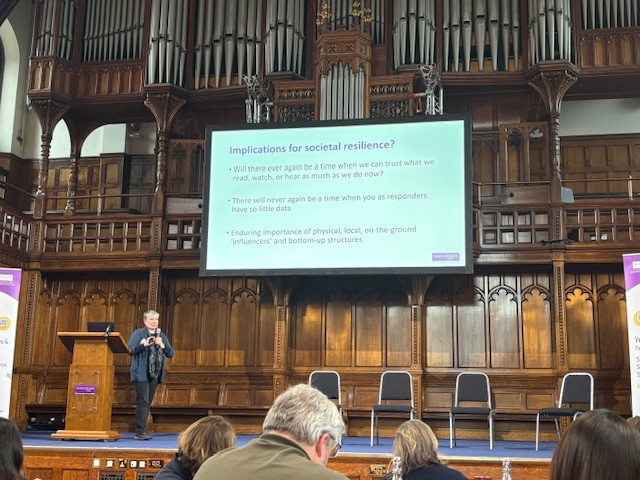Crisis Preparedness: Building Trust and Relationships
26 March 2025
Charlotte Dimond reflects on attending the recent National Consortium for Societal Resilience event in Manchester earlier this month.
Earlier this month, I had the opportunity to attend the National Consortium for Societal Resilience event in Manchester. The experience was both enlightening and sobering, offering an insight into the world of local resilience forums, academic researchers, local authorities, and global charities.
The Importance of Collaboration and Trust
A recurring theme throughout the event was the need for collaboration and relationship building. This echoed a recent webinar I attended, where one of the key messages was the importance of fostering strong partnerships to enhance societal resilience. Trust emerged as a central concept. As we know, trust is essential, especially in a crisis. It doesn't develop overnight and is tough to rebuild once broken.
In crisis situations, trust plays a pivotal role in how society responds. Questions arise about whether we trust the message, the messenger, and the instructions given to ensure safety. As one speaker aptly put it, "Make friends before you need them.” This principle is fundamental in Public Relations and Strategic Communication, where we invest in building relationships during peace times, knowing their value when crises occur. Anyone who has navigated a major crisis can attest to the importance of these relationships.
Strengthening capacity through relationships
These relationships are vital for strengthening capacity. A panel discussion highlighted international lessons on societal resilience, sharing experiences from South Africa, the Netherlands, and New Zealand. The panel underscored the importance of understanding your community and sharing knowledge—a lesson reinforced during the COVID-19 pandemic.
Addressing myths and misinformation
Another insightful session focused on myths, misinformation, and trust in societal resilience. It covered topics like scapegoating, blaming, and conspiracy theories, emphasising the need for credible information. An upcoming testing later this year will be crucial in assessing what has been learned over the past five years and what changes have been implemented in crisis response.
The role of communication professionals
What struck me most was the noticeable lack of communication professionals among the delegates, there were some, but not many. Despite the emphasis on trust, collaboration, relationship building, and credible information, communicators were underrepresented. I feel there is a real need for communication professionals to be at the heart of this work. Let's work together to ensure that communicators are in the room.
